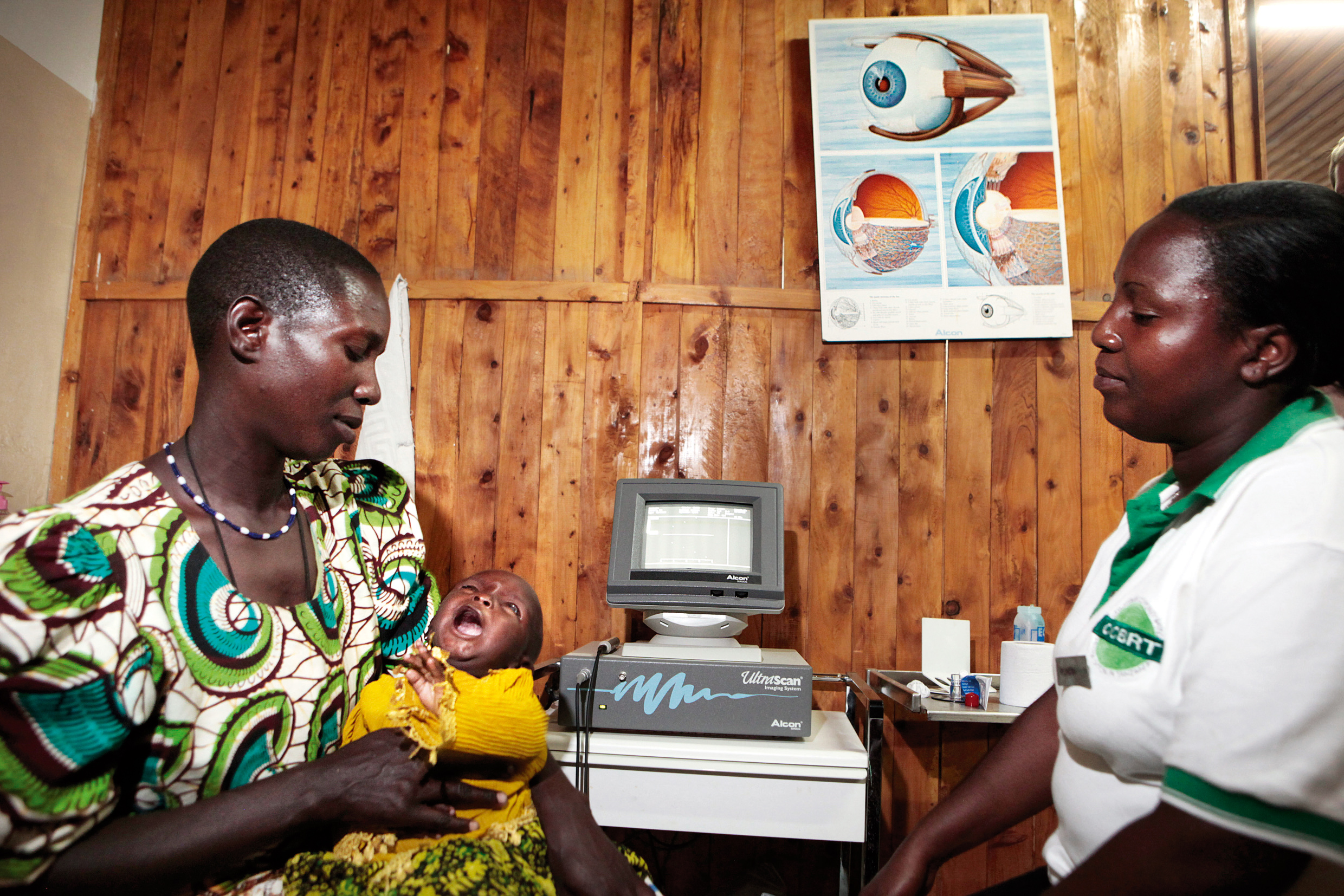Improving eye care knowledge and practice
Many of the causes of blindness and visual impairment in children in Africa can be prevented by interventions delivered at the primary level of service delivery (e.g. vitamin A supplementation to prevent corneal scarring from vitamin A deficiency; immunisation to prevent measles related blindness; and cleaning the eyes of newborn infants and instilling antibiotics or antiseptic drops to prevent conjunctivitis of the newborn). Children can also be blind from conditions where early identification and treatment can restore sight (e.g., cataract). However, staff providing services for mothers and young children not usually been trained in eye care.
A preliminary study undertaken in Dar es Salaam showed that training staff working in the Reproductive and Child Health clinics in the “ten key activities for healthy eyes in children” led to improved knowledge and better practices in relation to preventing blinding eye diseases. These positive findings led on to a larger study in Singida region in central Tanzania. Data collection for the first phase of this project, which included community-based and facility based studies, has been completed. The findings will be used to inform the design of the next phase when training will be scaled up.
Download the final report into the Singida region study: “Evaluation of the integration of eye care for children into primary health care system in Tanzania” (PDF)
Funding
Collaborators
- Muhambili University Hospital and Allied Sciences, Dar es Salaam, Tanzania
- Ifakara Health Institute. Tanzania
- Sightsavers Tanzania Country Office
Publications
- Mafwiri, MM, Kisenge R, Gilbert CE. A pilot study to evaluate incorporating eye care for children into reproductive and child health services in Dar-es-Salaam, Tanzania: a historical comparison study. BMC Nurs. 2014; 13: 15. Article
Image credit: .

